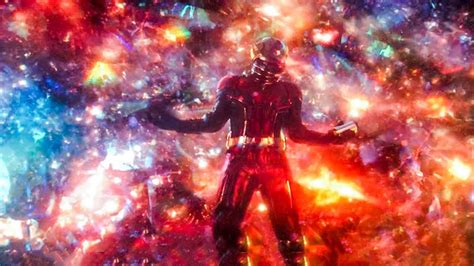|
home | what's new | other sites | contact | about |
|||
|
Word Gems exploring self-realization, sacred personhood, and full humanity
Quantum Mechanics
return to "Quantum Mechanics" main-page
Avengers Endgame (2019) Scott, Steve, and Natasha "Has either of you ever studied quantum mechanics?" "Only to make conversation."
Scott goes on to suggest that, if they could harness the quantum world’s characteristic of time manipulation, they could change the past. But this is not true. The quantum realm, though many believe and preach otherwise, has nothing to do with time travel. the popular, cinematic version of quantum mechanics will not help us with our investigation of science’s greatest mystery When Tony Stark is asked for his input regarding the use of quantum mechanics (QM) to put right what went wrong when Thanos attacked, he begins to use terms such as Planck’s constant, eigenstate, and the EPR paradox. Well, it’s fun, it all heightens the drama of the moment, and makes the “Infinity-Endgame” double feature one of the best action-movie productions of all time – however, the Hollywood version of QM will lead us astray. we’re unaware of the effects of QM in our day-to-day world Scott Lang explains QM as a microworld, a private universe of the very small. Well, yes, the effects of QM are most readily observed on the level of the ultra-miniscule, but QM affects everything, the whole universe at-large, even the “big” objects of the "normal" macro world. It’s like saying that Einstein’s Relativity affects things only at the speed of light; which is not true. When you walk from the living room to the kitchen, Relativity affects the flow of time, but, at these “slow” speeds, the change is so minute that our feeble five senses cannot discern the difference. and, unfortunately, politics enters the debate, as well In the “evolution” report we learned that politics often muddies the waters of this scientific investigation. We’re dismayed to learn that it impacts QM, too. Why is this? We’ll talk about it as we get into this. For now, if we truly desire to learn how QM works, we would do well to approach all this one step at a time, carefully considering each incremental advance. good theatre, not good science
"Everything we call real is made of things that cannot be regarded as real." Niels Bohr "There is no matter as such." Max Planck "The smallest units of matter are not physical objects in the ordinary sense." Werner Heisenberg Whatever it's made of, "matter is not made of matter." Hans Peter Durr
|
|||
|
|

